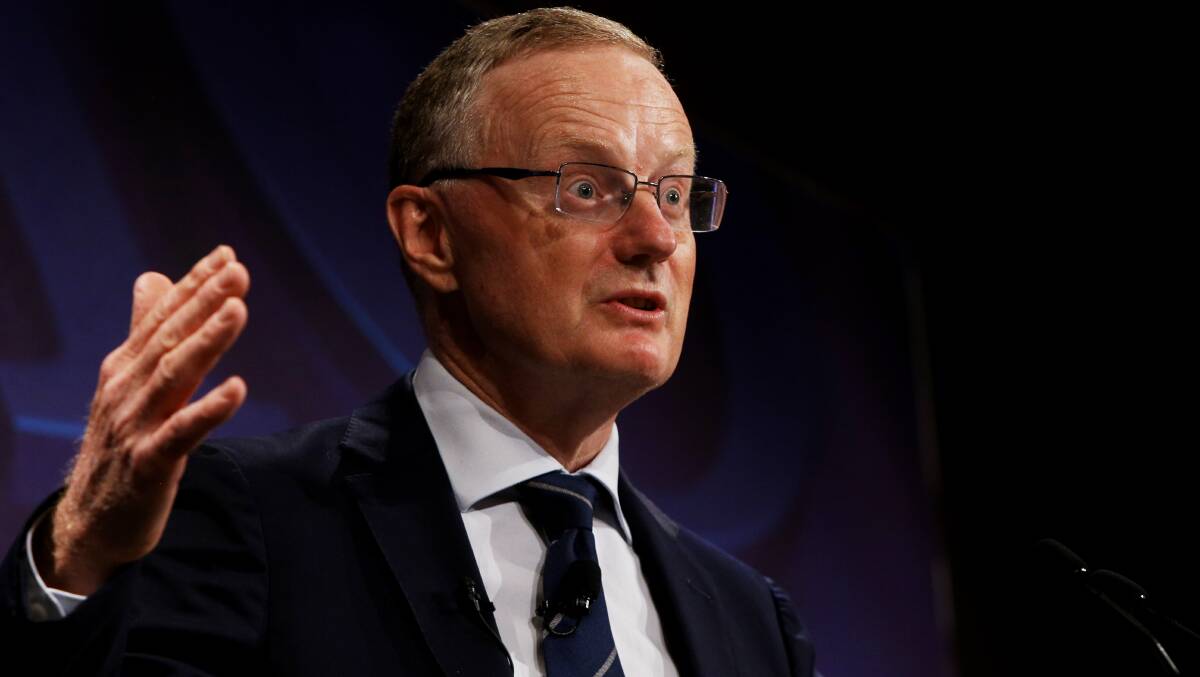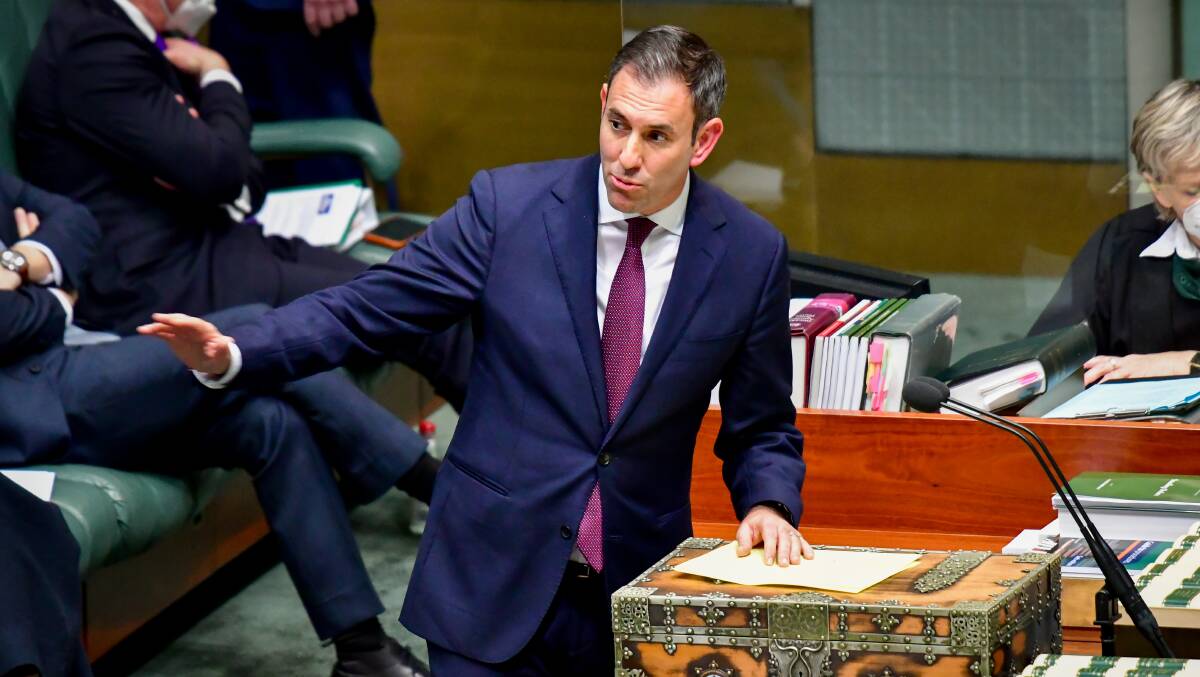The Reserve Bank has lifted the official cash rate by 50 basis points to 1.85 per cent as the federal government admits mortgage holders face a "difficult day" bracing for more increases to their repayments.
Australia's central bank was widely expected to lift the rate, following three consecutive hikes starting in May to combat inflationary pressures in the economy.
The latest rise marks the RBA's fourth consecutive monthly decision to raise the cash rate after it hit a historic low of 0.1 per cent to relieve households and stimulate economic activity during the pandemic.
RBA Governor Philip Lowe has foreshadowed further increases to come.
"The board expects to take further steps in the process of normalising monetary conditions over the months ahead, but it is not on a pre-set path," he said in a statement accompanying the bank's decision.
"The size and timing of future interest rate increases will be guided by the incoming data and the board's assessment of the outlook for inflation and the labour market."
Dr Lowe said both global and domestic factors had driven Australia's inflation levels, which the central bank predicted would peak at 7.75 per cent this year before falling to 4 per cent in 2023.
"There are widespread upward pressures on prices from strong demand, a tight labour market and capacity constraints in some sectors of the economy. The floods this year are also affecting some prices," he said.
Inflation would fall over 2023 and 2024 as global supply-side problems were resolved, commodity prices stabilised and rising interest rates took effect on households, Dr Lowe said.
Treasurer Jim Chalmers told parliament the latest rate rise would not be any easier for Australians to handle, even though they expected the decision.
"It's not a shock to anybody, but it will still sting. Families will now have to make more hard decisions about how to balance the household budget in the face of other pressures like higher grocery prices, and higher power prices and the costs of other essentials," he said.
The Treasurer said average homeowners with a $330,000 outstanding mortgage balance will have to find about $90 a month more for repayments after today's RBA decision, on top of the $220 extra in repayments since rates began rising in May.
Home owners with a $500,000 mortgage would need an extra $140 a month in addition to the extra $335 they've had to pay since early May.
Opposition treasury spokesman Angus Taylor responded to the rate hike saying the government still lacked a plan to deal with rising interest rates.
"In the absence of a plan from the Albanese government to deal with rising inflation and interest rates, Australians will get a plan from the Reserve Bank," he said.
"That plan will be to raise interest rates even further and Australians with a mortgage will pay the price."
Greens treasury spokesman Nick McKim called for a more expansive cost-of-living relief package funded by higher corporate taxes, and said big companies were using the cover of inflation to gouge prices.
"This is why raising interest rates is the wrong medicine," Senator McKim said.
"We need corporate super profits taxes to help rein in corporate profiteering and to help fund cost of living relief, such as by putting dental and mental into Medicare, building one million new affordable homes, and providing free childcare."
Dr Chalmers in a statement said the government was responding to economic pressures with cost-of-living relief that brought an economic dividend including through investments in cheaper childcare and medicines; spending to boost skills in the workforce; cleaner, cheaper and more reliable energy; and focusing on budget repair.
PM, Treasurer back Lowe

As pressure mounted on Dr Lowe and the RBA board ahead of the expected rate hike, both Dr Chalmers and Prime Minister Anthony Albanese on Tuesday morning said the central bank had their support.
Dr Chalmers said he "of course" backed Dr Lowe despite calls from economist Warren Hogan for the RBA governor to step down over the bank's failure to predict inflation pressures earlier.
Mr Hogan, former principal adviser to federal Treasury and chief economist at both ANZ Bank and Credit Suisse, was reported as saying the RBA had made "pretty bad errors" over the past 18 months and risked compounding those by lifting the cash rate too fast.
Among Dr Lowe's mistakes were predicting last year that the cash rate was "very likely" to remain at 0.1 per cent until at least 2024, and "taking out too much insurance" during the pandemic in its monetary policy, he said.
Dr Chalmers on Tuesday morning said the expected rate hike was not about any one individual.
"This is about a difficult day for Australians with a mortgage, another difficult day I think everybody is bracing for the interest rate rise that the governor and the Reserve Bank board has flagged," the Treasurer said.
"These decisions are taken independently by the Reserve Bank, by its board and by its governor. People are expecting this outcome today. But it won't make it any easier.
"My job is not to take pot shots at the governor, my job is to do what we can in the government to alleviate some of these inflationary pressures that we're seeing in the economy. And that's what our focus is."
READ MORE:
Mr Albanese echoed the support for Dr Lowe, saying he backed the RBA governor and the central bank.
"They are an independent authority. We recognise that people are doing it really tough and people are worried about increases in their mortgage. That was foreshadowed well before the federal election that would occur," the Prime Minister said.
"The RBA are in charge of monetary policy, of course, and the independent Reserve Bank will make their decision.
"But we are very conscious of the feelings that are out there that people are doing it tough and every half a per cent or quarter of a per cent in interest rates means higher payments for people. And that means they are having to make choices about how they get by."
Asked whether the federal government would ease cost of living pressures by extending the temporary halving of the fuel excise, Mr Albanese said its hands were tied by national debt levels it inherited from the Coalition.
"Unless that has got under control, then people will do it tough down the track because it will have an impact on the economy. So, we are very conscious about that."
Chalmers sounds economic warning

The RBA's decision to lift rates was widely expected following figures last week showing inflation soaring to 6.1 per cent over the past 12 months, its highest level in more than two decades.
In a major speech laying bare the scale of the challenges confronting Australia's economy, Dr Chalmers revealed last week that inflation would likely peak at 7.75 per cent before subsiding next year.
He said real wages weren't expected to start rising until 2023-24.
The Treasurer said international forces including Russia's invasion of Ukraine had contributed to the economic conditions, but pinned most of the blame for the cost-of-living crisis on the former Coalition government, saying it was responsible for high debt levels and a "wasted decade".
The statement came a day after figures revealed the annual inflation had soared to 6.1 per cent, on the back of the surging price of fuel, food and housing.
That figure was well above the forecast peak of 4.25 per cent included in pre-election projections.
Dr Chalmers said inflation was now expected to peak at 7.75 per cent in the December quarter, meaning households will continue to feel hip-pocket pain for months to come.
He said the forecast for wages growth was being upgraded to 3.75 per cent for the next two years, which, if it eventuated, would be the fastest rate in about a decade.
But that still wouldn't be enough to deliver a real wages boost to working Australians until 2023-24 because of the inflation rate.
The Treasurer has for weeks been warning Australians to brace for a "confronting" set of numbers, after inheriting an economy in the grips of domestic and international pressures which are putting strain on households and the federal budget.
In the RBA's statement on Tuesday, Dr Lowe said the economy was expected to continue growing strongly this year, before slowing in following years.
"Employment is growing strongly, consumer spending has been resilient and an upswing in business investment is under way," he said.
The central bank forecast GDP growth of 3.25 per cent over 2022 and 1.75 per cent in both of the following two years.
Job vacancies and job ads were at high levels and a further decline in unemployment was expected in months ahead.
"Beyond that, some increase in unemployment is expected as economic growth slows," Dr Lowe said.
The bank forecast an unemployment rate of 4 per cent at the end of 2024.
"Our liaison program and business surveys continue to point to a lift in wages growth from the low rates of recent years as firms compete for staff in the tight labour market," he said.


